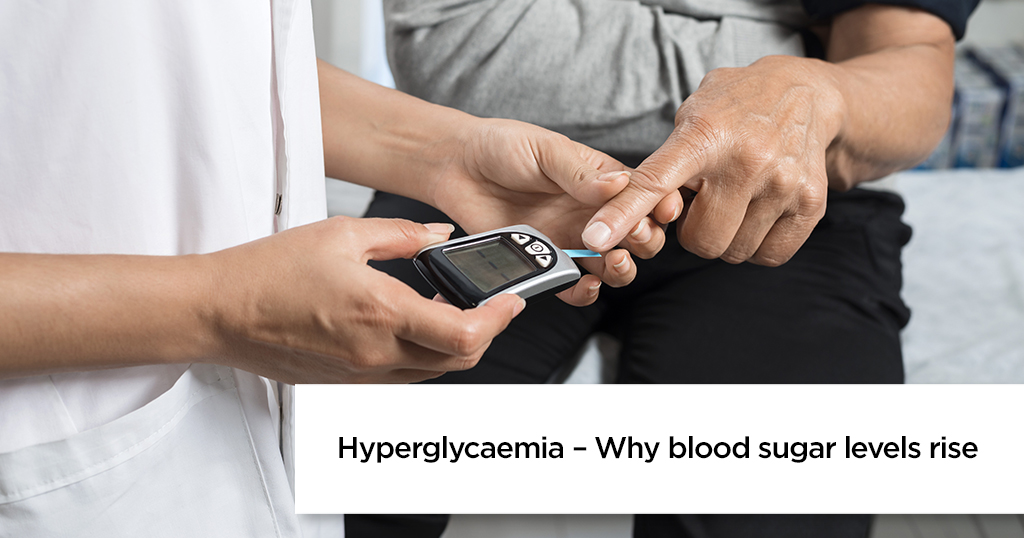Overview
Hyperglycaemia is a condition where blood sugar levels rise drastically, and if not corrected soon, can have far-reaching ill effects. Hyperglycaemia is a condition of high blood sugar levels.
What is hyperglycaemia?
Hyperglycaemia is a condition of high blood sugar, affecting millions of people around the world. It is a chronic health condition of too much glucose circulating in the blood plasma.
When glucose levels exceed 180 mg/dl (milligrams per decilitre), an individual is said to be hyperglycaemic. However, symptoms are usually not seen until after the levels cross 270-360 mg/dl. Chronic levels exceeding 125 mg/dl can be damaging for health.
Variances in glucose level pre- and post-meals are analysed to test hyperglycaemia.
Causes of hyperglycaemia
- Hyperglycaemia is mostly commonly caused by diabetes. When a diabetic does not properly use enough insulin or oral diabetes medication, blood sugar levels can increase.
- Lack of physical activity can be another cause of hyperglycaemia.
- At certain times, particular medication and illnesses may also cause a spike in the blood sugar levels of an individual.
- Emotional stress may also lead to hyperglycaemia.
Signs and symptoms of hyperglycaemia
There are different signs and symptoms of hyperglycaemia. Serious complications include kidney, neurological, cardiovascular and retina damages. Some of the common signs and symptoms are:
- Feeling of frequent hunger
- Frequent thirst
- A frequent need to urinate
- Blurred vision
- Sleeplessness
- Fatigue and weight loss
- Poor wound healing
- Dry mouth and itchy skin
- Erectile dysfunction
- Recurrent infections
Instant Treatment
Treating hyperglycaemia is possible with suitable diagnosis. Treatments are designed to maintain blood glucose at a healthy level. Immediate attention helps in avoiding long-term
complications. Acute hyperglycaemia is a condition of medical emergency, hence treatment becomes difficult.
The aim of medication by conventional or other medicinal options is to maintain blood glucose level. Immediate diagnosis brings the situation under control. Direct administration of insulin is the best instant treatment choice.
Long-term Treatment
Those suffering from chronic hyperglycaemia are advised to go for long-term treatment. Leaving it untreated might invite ketoacidosis (a condition where the body starts breaking down fat, leaving behind a waste product called ketones, large quantities of which the body cannot tolerate). It is important to test blood glucose as much as possible. Keep recording blood glucose readings while undergoing treatment.
Lifestyle changes are advised, that include regular exercise and a drastic change in diet. Drinking water to avoid body dehydration is also important.


















